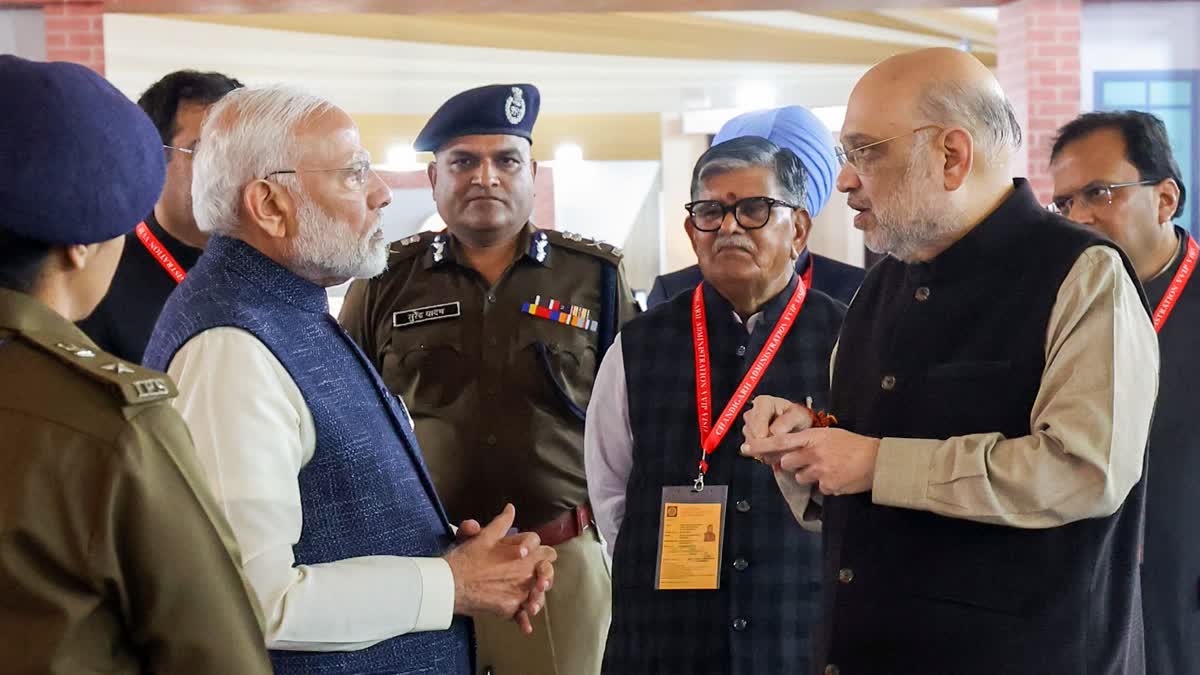Chandigarh: Prime Minister Narendra Modi and Home Minister Amit Shah visited Punjab Engineering College (PEC) here on Monday, where they reviewed India’s newly implemented three criminal laws.
Aimed to modernise the country’s legal framework, Bharatiya Nyay Sanhita (BNS), Bhartiya Nagrik Suraksha Sanhita (BNSS) and Bharatiya Sakshya Adhiniyam are set to replace the colonial-era Indian Penal Code (IPC), Criminal Procedure Code (CrPc) and Indian Evidence Act.
While emphasising newly adopted laws during a demonstration at PEC, Prime Minister Narendra Modi said, “These laws are a result of extensive consultations with legal experts, chief justices and scholars.” He described the laws as, “a milestone in India’s judicial system, designed to ensure faster and more equitable justice.”
Key changes in the laws
PM Modi highlighted several reforms, which include, a “mandate for courts to frame charges within 60 days and deliver verdicts in rape cases within 45 days.” He asserted that “these changes would eliminate endless delays and ensure that justice is delivered on time.”
“These laws guarantee equality before the law, especially for the poor and vulnerable who once feared the judicial process,” Modi said. He further added that the integration of digital evidence would strengthen India’s fight against terrorism and corruption.
The prime minister also noted that reducing judicial delays would attract more foreign investment. “Many investors hesitated to enter India because of prolonged legal battles. With these reforms, that fear is gone and our economy will benefit,” he stated.
Addressing Colonial Legacy
Modi criticized the colonial-era laws for perpetuating a mindset of control rather than justice. “The old laws were designed to punish Indians and protect British rule. It is time to shed this colonial legacy,” he said.
Curtailing Police Powers
The new laws introduce significant checks on police powers. Modi highlighted that:
Police can no longer detain individuals arbitrarily.
Adjournments in court cases will be limited to two.
Zero FIRs can now be filed from anywhere in the country and victims must receive a copy of their FIR.
“Even the withdrawal of charges against the accused will now require the victim’s consent,” Modi highlighted.
Amit Shah on New Legal Framework
Home Minister Amit Shah also addressed the event. While highlighting the significance of replacing colonial-era laws with Indian-made ones, he said, “The old laws were designed by the British to protect their rule, not to serve Indians. The new laws are made in India, by Indians, for Indians.”
Shah also noted that “the laws now define terrorism and organized crime, which were previously undefined, providing a clearer framework to prosecute offenders.
“The criminal justice system is now entirely Indian, designed to protect the rights and dignity of 140 crore citizens,” Shah said.
Read more:



